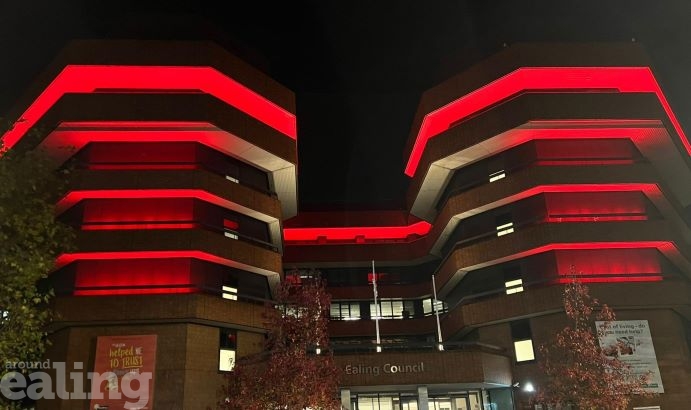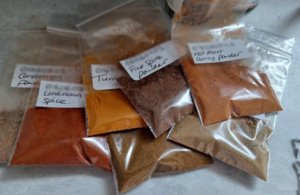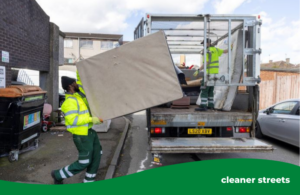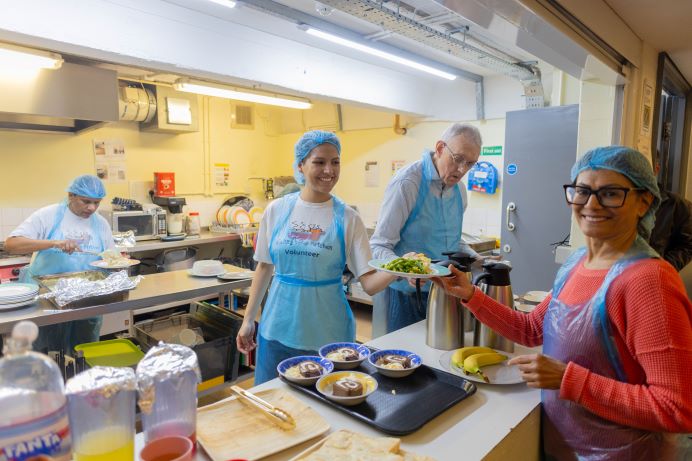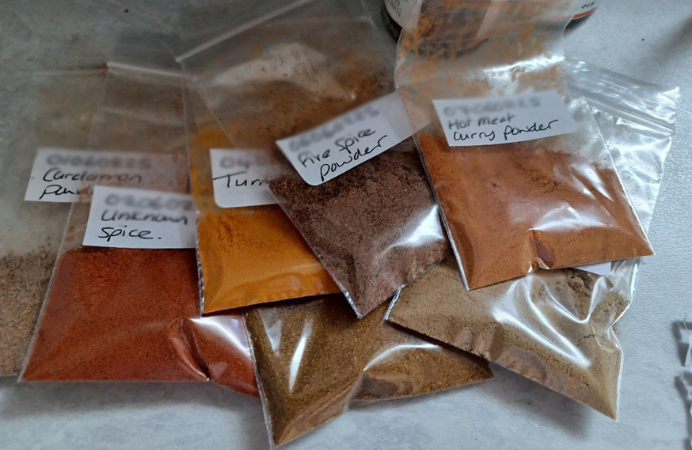On Sunday (1 December) Ealing Council’s Perceval House building was lit up red and flew the World Aids Day flag, in support of those living with or affected by HIV.
Free HIV tests and other support services have been offered to people, with a mobile testing unit travelling around the borough, as part of a week-long series of events. Among those tested when the bus visited Ealing Town Hall, was Councillor Polly Knewstub, the council’s cabinet member for healthy equal lives.
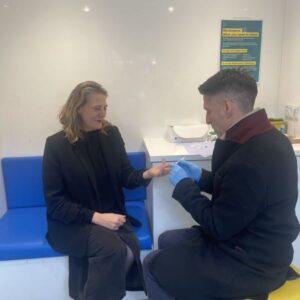
Councillor Polly Knewstub recently visited a new service, run by the council’s partner Living Well. She said: “I met people living with HIV who had never spoken openly about their diagnosis through fear but were seriously struggling with their physical and mental health. It struck me just how much of a changing and urgent need there is for specialist support.
“This year, the focus of World Aids Day is about what we can all do to end HIV stigma. By lighting up the building, and sending out our travelling bus, we want to send a very strong and visible message of solidarity to anyone living with or recently diagnosed with HIV. We are proud to support you.”
Over the past 40 years there have been incredible developments in prevention, diagnosis and treatment, but there is still a high prevalence of HIV in the borough and 39% of those diagnosed in London are diagnosed at a late stage.
Living Well and Positively UK work with Ealing Council to support people living and affected by HIV in the borough. They offer a range of one-to-one and group-based support services such as free counselling, life coaching, peer mentoring and wellbeing groups.
The danger of self-stigma
Simon Jones, Living Well’s chief executive, said: “There’s a really unique set of challenges that people living with HIV face; which many people just don’t understand, they see positive headlines about treatment, and I’ve heard people say things like ‘it’s not such a big deal anymore’.
“People living with HIV face not only community stigma but often what’s much worse is their self-stigma; which is why there are such high levels of isolation and mental health problems. Of course, it’s incredible that we now have more people who live longer with HIV, but we see what comes with our ageing population is an increased risk of poor health, the impacts of treatments or side effects from drugs they were given 30 years ago that have left them with disabilities and multiple long-term conditions. People with HIV also have higher rates of other conditions such as cancer or heart disease at a younger age.”
‘Support needed more than ever’
Simon added: “There is no one-type of person who lives with HIV, we work with people across cultures, ages, sexualities and socio-economic groups. But sadly, one thing we have seen increasingly over recent years is far more people forced into poverty, with challenging housing situations, facing discrimination or lack of understanding in really challenging situations where their physical and mental health suffers significantly.
“Specialist HIV support is needed now more than ever. Working together with the council and our NHS colleagues who are there to support people from the point of diagnosis we can help people to develop key life skills to enhance resilience, build confidence and make healthy choices, within a supportive environment. Improving the health, wellbeing and quality of life of people living with HIV is vital.”
More information
HIV support services are available in community settings across the borough. For more information or to make a self-referral visit the Living Well or Positively UK websites. You can also also call or call 020 3137 3373 or 020 7713 0444 or email info@livingwell.cic.com or info@positivelyuk.org
